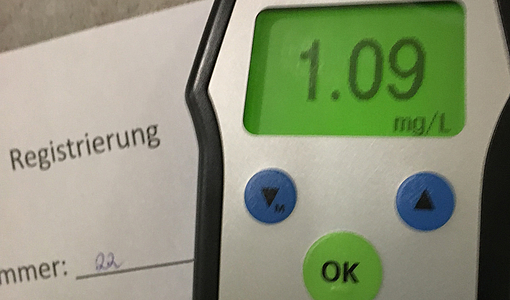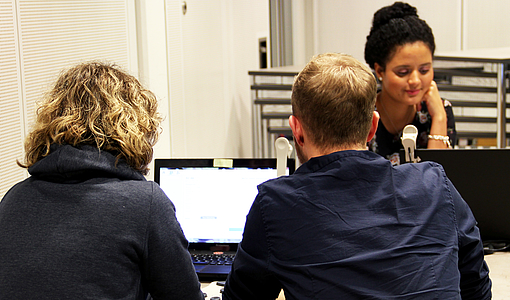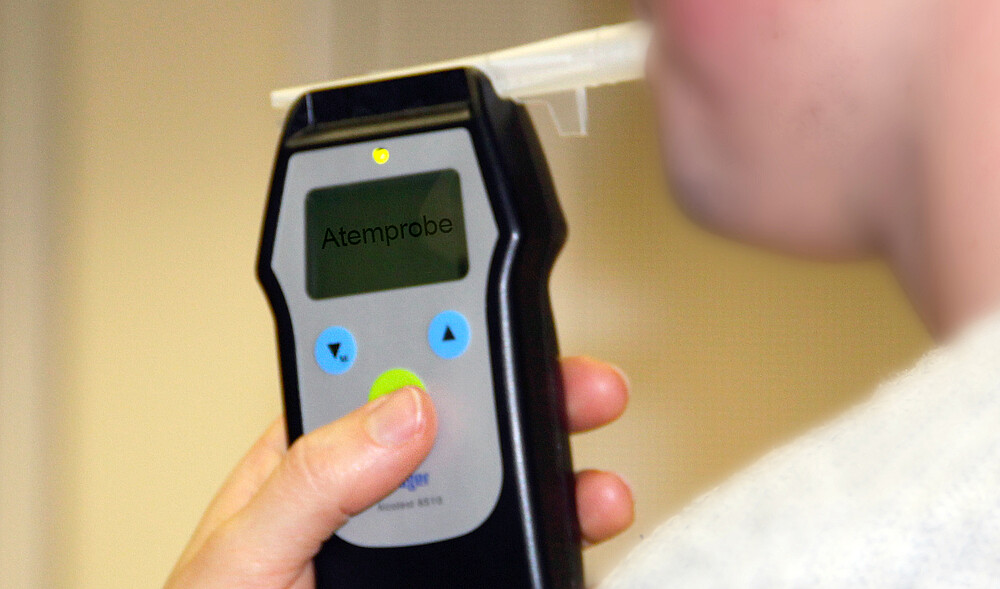Under medical supervision, 60 students got drunk in the service of science at the Police University in Rothenburg. As test subjects, they took part in a nationwide cooperation project between all state police forces, the Zittau/Görlitz University of Applied Sciences and the Saxon Police University.
Once the test subjects had reached a certain level of alcoholization, various tests were carried out. An important element of the study is the question of whether "blowing" into the measuring device provides results that are just as conclusive as testing the alcohol level by taking a blood sample.
The Federal Institute for Occupational Safety and Health estimates that alcohol plays a role in 10 to 30 percent of accidents at work. In road and air traffic as well as in the operation of technical equipment, alcohol consumption during work is a criminal offense. Precise methods are required to provide evidence in court in accordance with § 316 StGB. Previous methods for measuring breath alcohol are not reliable as evidence, as alcohol consumption does not lead to a continuous linear drop in performance, but can even lead to cognitive performance increases at times when the test person is impulsive, with considerable deviations between the blood alcohol per mille value and the mg/l breath alcohol criterion. Therefore, in case of doubt, a blood alcohol test is always necessary for legal assessment, which is associated with significantly higher costs, effort and a sometimes considerable time delay at the time of the offense.

The medical and psychological data obtained is currently being analyzed by Prof. Dr. rer nat. Matthias Schmidt (Industrial and Organizational Psychology), Prof. Dr. habil. Anton Sterbling (Saxon Police University), Dr. Erik Fritzsche (TU Dresden) and Prof. Dr. jur. Dieter Müller (traffic law) and compared with other project partners in the nationwide research network. There is active support from young scientists at both universities.
Another aim of the organized scientific drinking was to show the prospective police commissioners how alcohol affects the body and the psyche. This is important in their day-to-day work in order to be able to make better sense of certain situations.

To this end, all volunteers underwent traffic psychology tests - once sober and once with alcohol in their blood. The medical-technical supervision of the laboratory equipment was carried out by specialists from the Brandenburg Technical University in Cottbus. The psychological and neurological performance tests were carried out by employees of the Zittau/Görlitz University of Applied Sciences. After the two days of testing, all participants agreed that the current alcohol limit of 0.5 per mille at the wheel is too high; a complete ban on alcohol in road traffic would be better.
Contact:
Prof. Dr. rer. nat. Matthias Schmidt
Field of appointment: Work & Organizational Psychology
Faculty of Social Sciences
E-mail: matthias.schmidt(at)hszg.de

